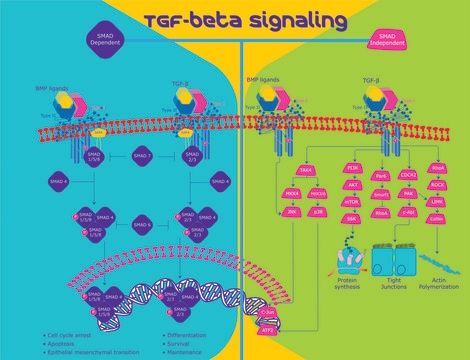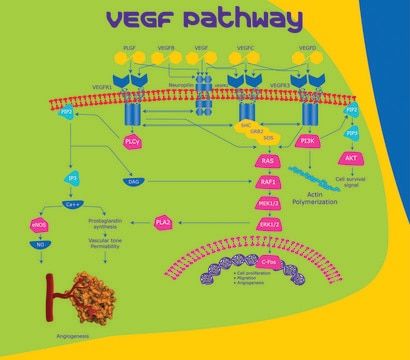SRP4739
PLGF-1 human
recombinant, expressed in E. coli, ≥95% (SDS-PAGE), ≥95% (HPLC)
Manufacturer: Sigma Aldrich
Synonym(S): PGF, PIGF, PLGF 1, Placenta Growth Factor-1
Select a Size
| Pack Size | SKU | Availability | Price |
|---|---|---|---|
| 25 μG | SRP4739-25-μG | In Stock | ₹ 34,943.10 |
SRP4739 - 25 μG
In Stock
Quantity
1
Base Price: ₹ 34,943.10
GST (18%): ₹ 6,289.758
Total Price: ₹ 41,232.858
biological source
human
recombinant
expressed in E. coli
Assay
≥95% (HPLC)≥95% (SDS-PAGE)
form
lyophilized
mol wt
~29.7 kDa
packaging
pkg of 25 μg
storage condition
avoid repeated freeze/thaw cycles
impurities
endotoxin, tested
NCBI accession no.
AAD30179
UniProt accession no.
P49763
Description
- General description: PLGF (placental growth factor), originally identified in human placenta, is a member of the VEGF (vascular endothelial growth factor) family. This protein is predominantly expressed in placenta, and also shows expression in heart, thyroid, lung and skeletal muscle. It is alternatively spliced to produce three isoforms in humans namely, PLGF1, PLGF2 and PLGF3.[1]Recombinant mouse PLGF is a disulfide-linked homodimer containing two 142 amino acid polypeptide chains.
- Biochem/physiol Actions: PLGF (placental growth factor) is involved in angiogenesis, but does not play an essential role in angiogenesis during reproduction and development. However, inactivation of this gene in pathological conditions such as, ischemia, inflammation and cancer, results in impaired angiogenesis. Preclinical studies show that this protein might be a therapeutic target for treatment of angiogenesis and inflammation related disorders.[1] In acute coronary syndrome (ACS) patients, increased levels of PLGF are linked with obstructive sleep apnea (OSA) and short-term adverse outcomes.[2]
- Physical form: Sterile filtered and lyophilized with no additives.
- Reconstitution: Centrifuge the vial prior to opening. Avoid freeze-thaw cycles.
SAFETY INFORMATION
WGK
WGK 3
Flash Point(F)
Not applicable
Flash Point(C)
Not applicable


